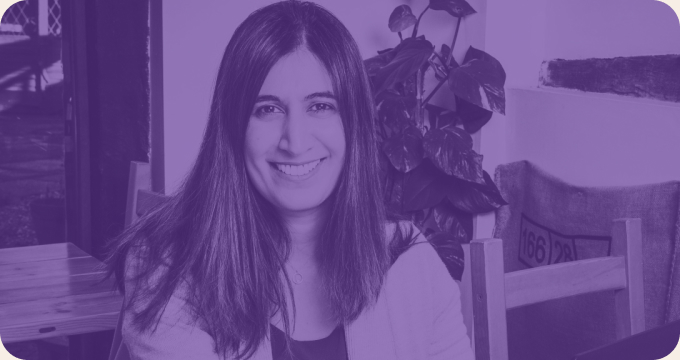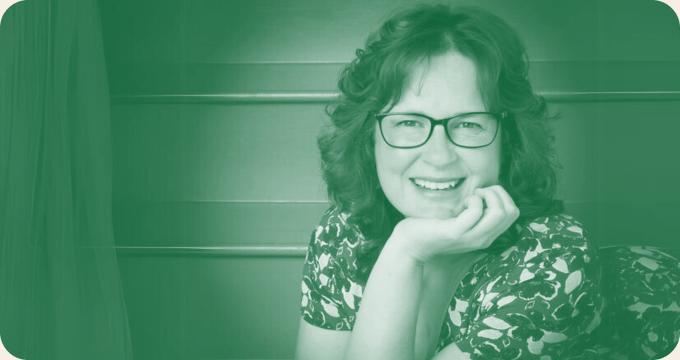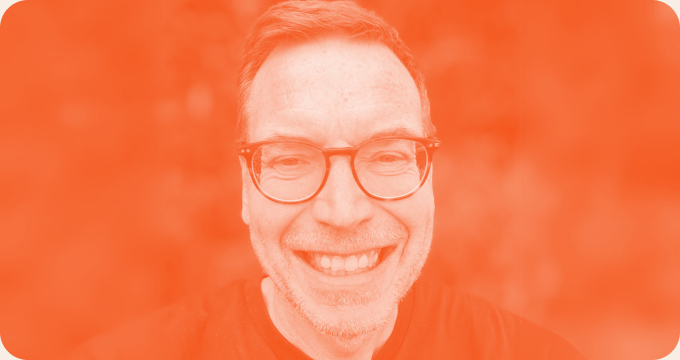Coaching – what it is and who it’s for – can be really bl**dy confusing.
If you’ve ever thought to yourself, “What does a coach DO exactly?” or “How do I choose the right one?” You’re going to want to keep reading.
📣 Introducing ‘Happi coach focus’ 📣
A brand new series of curious conversations with the More Happi coaches – demystifying coaching with their stories and insight.
We’re kicking things off with Narinder Sheena (CPC/ELI-MP) – a former Lawyer turned Chronic Pain and Mindset coach.
Coaching with More Happi Happi since August 2023, Narinder has an impressive average coach rating of 5/5 ⭐️⭐️⭐️⭐️⭐️
So, what sparked her career change? And which coaching myths would she love to debunk? Let’s find out.
How would you describe coaching to someone who has never experienced it?
- Coaching is an exploration of your current reality in any area of your life where you are seeking a change. It’s gaining awareness of your perspective of what’s going on in your life, just like the flick of a switch and you go ‘aha’ I understand now.
- This happens through open questions, allowing you time and space to consider your thoughts, and find ways to gain clarity, or an action.
- It’s also through noticing the words, and language you use, and noticing energetic shifts that may provide deeper insight into what is currently going on in your life, and how you seek to make a change out of a coaching session together.
What key value(s) do you prioritise in your coaching practice?
- Self-care – through emotional regulation – exercise, journalling and meditation, and being kind to myself.
- Authenticity – through communication, self-awareness, showing and receiving respect from others.
- Connection – through love, family, friends, collaboration and community.
Using 3 words or less, tell us how someone might feel after coaching with you.
Wonderful, energised, lighter.
What was the spark that inspired you to change careers and train to be a coach?
I was managing a team and feeling unfulfilled. One weekend I decided to check out a free NLP event in London and it blew me away! I suddenly understood about limiting beliefs, mindset and their impact. It was a long journey, but a gratifying one to where I am now. I wanted to use my skills to make a significant impact and allow people to think for themselves, feel empowered, and make a positive difference to their lives.
What did you learn from the experience of changing careers that you’d like to share?
I learnt that my mindset of fear, environment, and anxiety of change could have been reduced by investing in a coach or reaching out. I learnt the hard way through my own struggles with mental and physical pain, which led to the big leap.
In your opinion, what sets your coaching style apart from others in the field? What life events and work experience(s) shaped your unique approach?
- I’ve suffered grief, anxiety, burnout, imposter syndrome. I also suffered from fear of a career transition. I suffered chronic pain from migraines to a severe disc prolapse, where I was advised to have surgery. Through awareness, and education I got help through medical experts, and ultimately coaching to champion me to recover and heal, which has had a huge impact on me personally, as well as my perspective on my health.
- Having worked in the corporate world as a lawyer, (and more likely neurodiverse – although not formally diagnosed) I understand what it’s like to work in a high-pressure environment and the challenges of time management, organisation and stress.
- In my family, mental health has been prevalent, allowing me to empathise on a deep level with clients going through the same challenges.
- I’m an NLP Practitioner, so I like to use visualisation, or stacking anchors in my coaching approach.
- I also have a qualification in Energy Leadership coaching, where I can provide an energetic report on an individual’s current stress levels. I understand how stress can impact all areas of your life and this makes me very intuitive.
- I have a second coaching qualification related to neuroscience and positive psychology which tailors the way I coach individuals.
What are your top 3 most common coaching topics you coach on at More Happi?
Work/life balance, anxiety, overwhelm.
In your experience, what are the most common misconceptions people have about seeking guidance from a life/career coach? How do you debunk them?
That it’s similar to counselling, it’s woo-woo and adds no value, and that they don’t need it. In reality, coaching doesn’t deal with past trauma like counselling. Also, it can be used to deal with real-life emotional issues such as confidence, anxiety, and burnout, but also to propel career development and action planning in any area of your life. This helps you bring transformative change personally and professionally.
How do you like to stay updated on the latest trends and insights in coaching to ensure your clients receive the relevant tools to drive them forward?
- I attend regular workshops, training, and webinars online and in person from different types of coaching methodologies from neuroscience, to trauma-led coaching to leadership and health coaching.
- I regularly read books to enhance my knowledge and some of my favourites have been:
📖 Growth Mindset – Carol Dweck
📖 Atomic Habits – James Clear
📖 Time to Think – Nancy Kline
Share a client success story that resonates with you the most.
I worked with a client whose goal was to become pain-free after 10 years of chronic back pain. I found out what was happening in their life and where they were at, and shared resources (books, articles, and apps) after each session. We also worked with a values coaching tool to assess who they really were, and what was important to them, and other tools such as the circle of concern. I allowed time and space for the client to become aware of their thought processes, and become vulnerable in a safe space, that was non-judgemental. Sharing their deepest thoughts at their pace in each session, noticing their energy, and using their language allowed insight and deep reflection for the client. Through our partnership, she was able to start focusing on all of the joy and pleasure in her life that had been missing due to stress, and lack of boundary setting, which significantly reduced her pain to times she didn’t even feel pain.
How would you describe coaching with More Happi?
It is impactful, and transformative for employees who would be unlikely to have had access to coaching. It is creating a ripple effect across the globe for coaching to be accessible to everyone.
What advice would you give to someone who is considering working with a coach for the first time?
- They should do their research, and check their credentials to make sure they are who they say they are. For example, look to see if they are part of a coaching organisation, such as ICF, Association of Coaching or EMCC and/or check reviews on Google, or testimonials.
- Ask others who have had coaching and what their recommendations are.
- Look at a few coaches to give you options, and consider what issues you want to talk about and what outcome you are expecting. Also, consider how much you are willing to spend on coaching.
Share a memorable lesson, tool, or insight you’ve gained from your coaching journey that has had a lasting impact on your own personal development.
Be curious and open to change. The biggest growth comes from accepting that change comes from within us, overcoming the blocks that stand in our own way, and discovering that our life journey is a wonderful adventure of discovery.
Can you name a coach that has had a big impact on your life?
Toby McCartney. He inspired me to be authentic and kind in a way that was empowering. His knowledge and expertise left a huge print on my mind, and I was lucky enough to have Kate McCartney his wife teach NLP last year in relation to dealing with health coaching.
Lastly, can you share a personal quote that guides you and/or your coaching practice?
“The purpose of pain is to move us into action. It is not to make us suffer.”
Follow Narinder Sheena (CPC/ELI-MP) for coaching tips, inspiration, and insights to navigate life’s challenges with resilience and grace.
🔥 What burning question do you have for our coaches? Let us know and we’ll include it in our next feature.
Who are the More Happi coaches?
With over 100 available coaches, covering 15+ specialist skill sets, you can work with the same coach continuously or move around and try different styles to see what works for you. You’re in control.
Our qualified coaches have trained with the top International Coaching Federation, EMCC UK and Association for Coaching (AC) accredited schools. After the 4-part recruitment process, they are continuously verified by More Happi to ensure high quality, and receive further monthly training and supervision from experts in the field.
More Happi enables qualified, professional volunteer coaches to rapidly achieve further ICF credentials, enabling them to achieve their own career goals in half the time.
It’s a win-win for everyone involved.
Discover your perfect coach at www.morehappi.com




